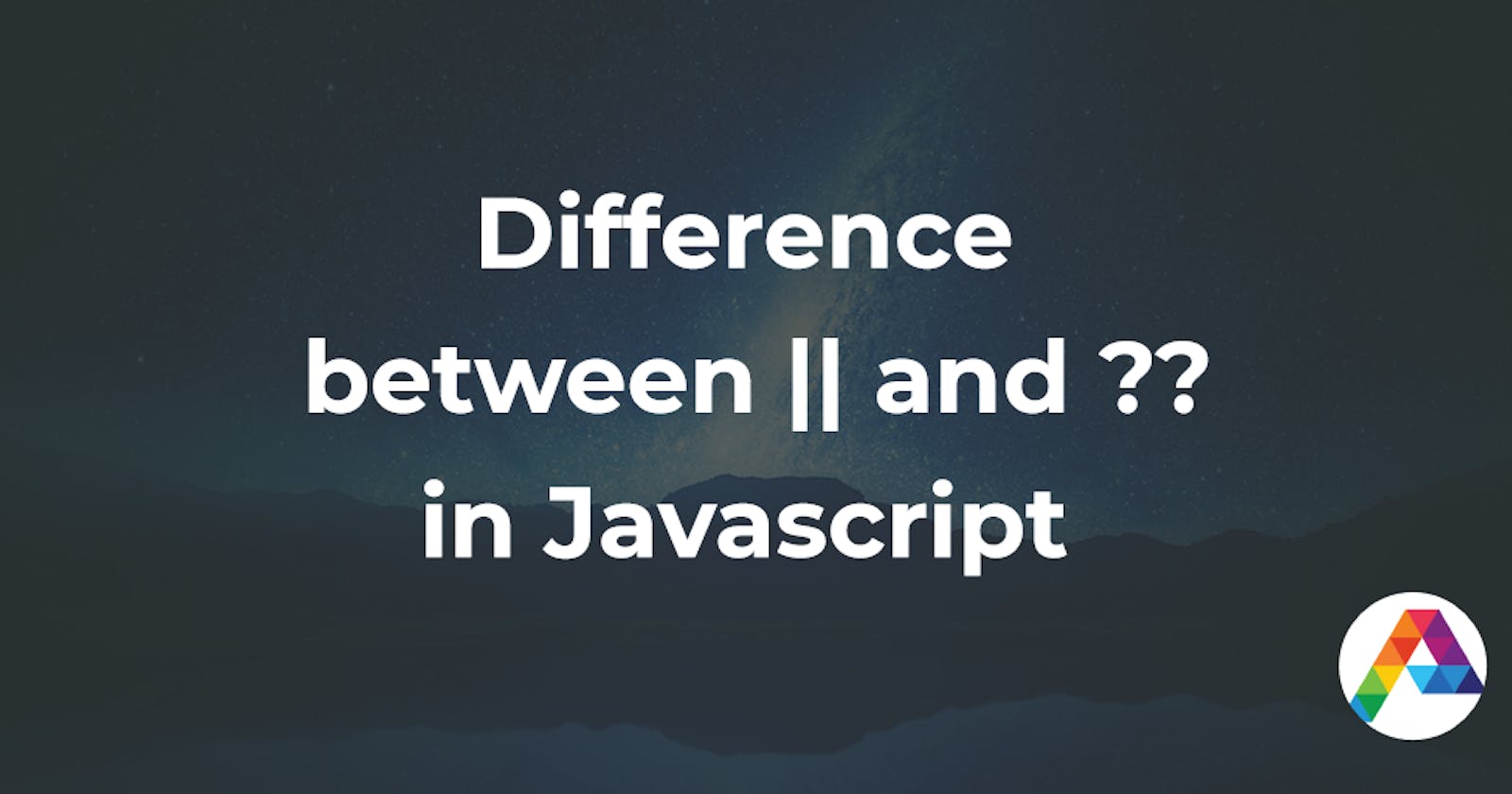Historically, the OR || operator was there first. It exists since the beginning of JavaScript, so developers were using it for such purposes for a long time.
On the other hand, the nullish coalescing operator ?? was added to JavaScript only recently, and the reason for that was that people weren’t quite happy with ||.
The important difference between them is that:
||returns the first truthy value.??returns the first defined value.
In other words,
||doesn’t distinguish between false, 0, an empty string "" and null/undefined. They are all the same – falsy values. If any of these is the first argument of||, then we’ll get the second argument as the result.
In practice though, we may want to use default value only when the variable is null/undefined. That is, when the value is really unknown/not set.
For example, consider this:
let height = 0;
alert(height || 100); // 100
alert(height ?? 100); // 0
The height || 100 checks height for being a falsy value, and it’s 0, falsy indeed. So the result of || is the second argument, 100.
The height ?? 100 checks height for being null/undefined, and it’s not, so the result is height “as is”, that is 0.
In practice, the zero height is often a valid value, that shouldn’t be replaced with the default. So ?? does just the right thing.
